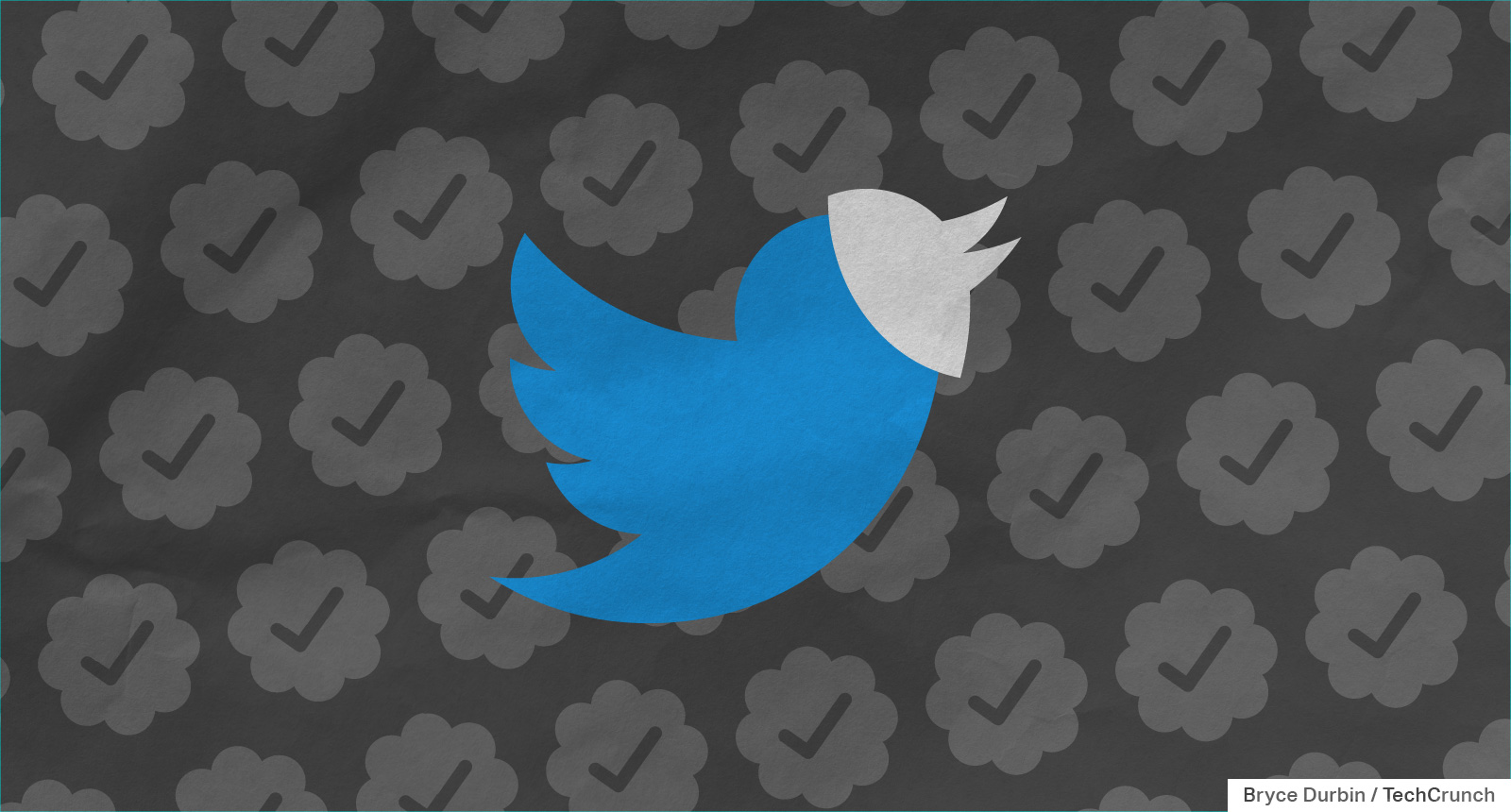Welcome to Startups Weekly, a nuanced take on this week’s startup news and trends. To get this in your inbox, subscribe here.
Hey, folks. It’s Kyle, filling in this issue for Natasha, who’s taking a much needed break from the news cycle (and the spectacle that’s become Twitter). While it’s my first Startups Weekly column, you’ve likely seen me on TC here and there, covering chiefly venture, AI and enterprise-related items. It’s a real pleasure to round up this week’s startup news — partially because it doesn’t center around Musk shenanigans.
But before we collectively tune out for the weekend, let’s recap the week, which was marked by the midterm elections in the U.S.
As loathsome and distressing as the U.S. election cycle has become, the outcome always has major implications for the tech industry. U.S.-based chipmakers are holding out hope for relief as the U.S. increasingly decouples from China. Crypto businesses are awaiting regulations to establish guardrails for so-called stablecoins and settle jurisdictional issues. And the largest tech giants are bracing for a possible last-ditch effort by the White House to pass antitrust legislation — pending, of course, the post-midterm political climate.
It goes without saying that the stakes are high. Sanctions, alongside supply chain constraints and inflation, threaten to depress the stateside chipmaking industry — one chip machine firm, Lam Research, has already predicted losses up to $2.5 billion in revenue next year due to newly imposed trade rules. The antitrust bills, if passed, could significantly restrict the ability of Amazon, Meta, Microsoft and other tech incumbents to acquire and punish rivals to boost their own products and services.
Unsurprisingly, the industry was out in force for the 2022 midterms, judging by the top donors. Google, Amazon, Meta and their trade groups poured almost $100 million into lobbying as they sought to derail antitrust legislation — and its supporters. Meanwhile, according to an analysis by the Washington Post, FTX CEO Sam Bankman-Fried, Larry Ellison and Peter Thiel gave tens of millions of dollars to their preferred campaigns, exerting a stark technologist influence on the acerbic field.
Whether the industry succeeded in securing a bright two-year future for itself is up for debate.
Excepting those in sectors with bipartisan support, like defense, startups could be the ones to suffer the most in this politically divided stretch — especially those in the chipmaking, green and crypto businesses. At least one study finds that congressional gridlock contributes to income inequality, while another implies that political stalemates have a greater negative impact than even hostile government policies on a company’s ability to innovate.
Consider how a recession might play out. Assuming Congress is slow to act (as divided branches often are), there could be less federal government spending on social safety net programs, leading to a drawn-out recovery. There’s the prospect of debt ceiling fights, too, which could be damaging in a different aspect. Recall that as result of debt ceiling bickering during President Barack Obama’s first term, the U.S. lost its perfect AAA credit rating from Standard & Poor in August 2011, prompting the stock market to plunge more than 5%.
In a note to investors, Morgan Stanley predicts that the current Congressional divide means fiscal expansion will be reactive as opposed to proactive over the next two years, coming only as “a reaction to deteriorating economic conditions or an external shock to the economy.”
Of course, partisan gridlock needn’t be entirely a bad thing where it concerns the economy — or startups. According to data from Edelman Financial Engines cited in a piece by CNN Business, the S&P 500 had an annualized return of 16.9% since 1948 during the nine years when a Democrat was in the White House and Republicans had a majority in both chambers of Congress. That compares to 15.1% during periods of full Democratic control and 15.9% in years when there was a unified GOP government.
A silver lining, but a relatively weak one, admittedly.
In the rest of this newsletter — which is less of a downer, I promise! — we’ll talk about Twitter’s fleeing user base, the rise of generative AI and e-commerce’s enduring VC appeal. For more content along those lines, give me a follow — I’m at @Kyle_L_Wiggers on Twitter (Mastodon migration pending).
Twitter’s losses are rivals’ gains
Nary an hour goes by without news of Twitter’s rocky transition under new management. Last weekend, the network began banning certain parody accounts following a Musk-led rule change, including the accounts of high-profile comedians. Then on Tuesday came a report from Platformer’s Casey Newton that Musk is considering putting all of Twitter behind a paywall. Yikes.
The unpredictable policymaking has begun to spook users, some of whom are leaving for what they see as greener pastures. That’s to the benefit of startups like Mastodon, a Germany-based platform that offers an experience in many ways comparable to Twitter’s. (For a primer on Mastodon’s history, how it works and how to join it, read my colleague Amanda Siberling’s piece, which does a thorough job of breaking it all down.)
Here’s why it’s important: Mastodon has experienced rapid growth since Elon Musk’s takeover of Twitter, with nearly half a million users joining the network since October 27. While the company is nonprofit, its expansion could fan Twitter rivals’ emergence from the ashes — and VC backing of those rivals. Former Google Area 120 director Gabor Cselle is among the opportunists, announcing on Monday that he’s secured interest (and promises of capital) from investors and an ex-Twitter exec to build a Twitter alternative.

Let AI generate it
Generative AI is the hot new thing in tech. Well, perhaps not new, but it’s recently entered the VC lexicon thanks to high-profile text-to-image AI systems like OpenAI’s DALL-E 2 and Stability AI’s Stable Diffusion. Stability AI recently raised $101 million at a reported valuation over $1 billion, and OpenAI is said to be in talks for capital from Microsoft and other backers at a valuation close to $20 billion.
Deepfaked porn and AI-generated art competition entries might be dominating the headlines. But investors see massive potential in generative AI built for the enterprise. TechCrunch’s Rita Liao this week covered Movio, a two-year-old startup leveraging generative AI along with other AI frameworks to make videos featuring talking human avatars. A little earlier in the fall, I wrote about Jasper, an AI content platform for marketing that landed $125 million at a $1.5 billion valuation.
Here’s why it’s important: VCs are increasingly bullish on generative AI. In a recent article on its website, VC firm Sequoia muses that generative AI — referring to any AI that can generate text, photos, audio or video — has the potential to “generate trillions of dollars of economic value.” Trillions might sound optimistic, but what’s certain is LP’s willingness to write checks is fueling an explosion of new ventures in the nascent space.

From home workouts to home decor
What’s Peloton co-founder John Foley been up to since he left the company in September? Becoming something of a rug salesman, apparently. Really. My colleague Rebecca Szkutak profiles Foley’s latest venture for TC+, called Ernesta. Aiming to launch in spring 2023, Ernesta — backed by $25 million in venture capital — will sell custom rugs through a direct-to-consumer (DTC) strategy.
Here’s why it’s important: Rugs online might seem random. But the fact that Ernesta secured a large tranche so quickly points to the continued investor enthusiasm around e-commerce — in spite of souring views on DTC. The pandemic supercharged online shopping, driving the digital sales of goods to $815.4 billion in 2020 up from $671.2 billion in 2019, according to the U.S. Census Bureau’s Annual Retail Trade Survey. Where it concerns DTC, high-profile flops like Casper, Brandless and Outdoor Voices have given some VCs pause to be sure. But as Ernesta’s success shows, the funding hasn’t dried up yet. The rug company joins Rad Power Bikes, Madison Reed and Glossier among the DTC brands that have landed tens of millions in equity at sizable valuation step-ups.

A few notes
- If you missed last week’s newsletter, read it here: Tweep’s Twitter.
- TechCrunch is going to Miami next week to throw, you guessed it, a crypto conference. Some of my absolute favorite people are going to be there, including our star crypto team, so make sure you head over and feel free to DM me for a sweet, sweet discount code. Buy tickets and see our line up here.
- Missing Natasha? Not to worry, she’ll be back next week to write the next edition of Startups Weekly. Be on the lookout!
Seen on TechCrunch
Skyroot wants to kickstart private spaceflight in India with first rocket launch next week
Humble keeps excess inventory out of the Philippines’ landfills
Laid off from your tech job? Day One wants to give you $100,000 to start a company
Quona Capital sinking $332M into startups focused on financial inclusion
Seen on TechCrunch+
Carbon cap and trade for developing world could spur massive investments — if it works
Startup CEOs sound off on picking cloud providers
What’s the right NDR target for SaaS startups?
I’ve worked with hundreds of unicorns: Here’s what founders and executives need to focus on
Dear Sophie: How can I stay in the US if I’ve been laid off?
Like Startups Weekly? Natasha and I hope so. If you’d like to support us, please send it to a friend and share it on your social channel of choice. It’d mean a lot.
Have a story tip? Feel free to hit up my inbox. These days, I’m especially interested in generative AI, so don’t be a stranger if you’re working on something germane to it.






























Comment